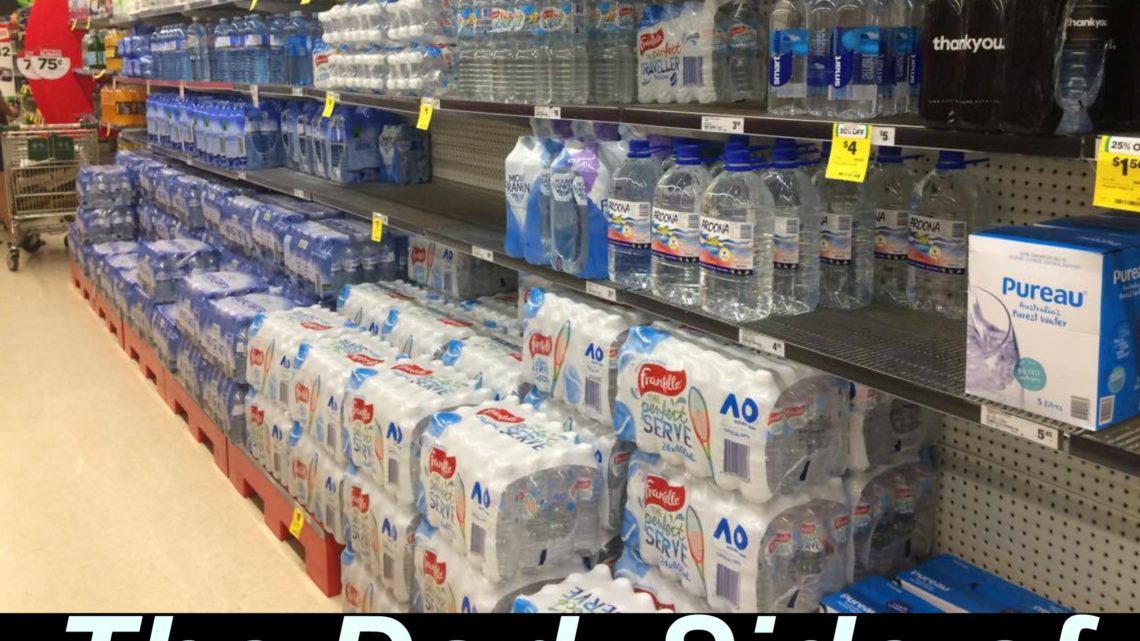
We all think we are healthy and making a great decision when we reach for a bottle of water in the supermarket instead of the sugary alternatives. Did you know the dark side of bottled water? Water is always a better choice for you and your body will thank you in many ways if you choose that over sugary drinks. You really should cut out the sugar loaded drinks for the benefit of your body, however, the environment is suffering when you choose bottled water.
It is estimated that Australians consume over 600 million litres of bottled water each year, from that approximately 370 million bottles end up in land fill each and every year. Those 370 million bottles make up 38% of Australias total rubbish volume. Plastic bottles are in the top ten items collected each and every year on Clean Up Australia Day. That just seems crazy to me, but wait a minute there is more. Most plastic bottles are made from PET which is produced from crude oil, it takes approximately 250ml of oil to produce just 1 litre of water. Bottled water is not looking so environmentally friendly now and considering that 3 tons of carbon dioxide is released into the atmosphere for every ton of PET that is produced is it really worth it.
We are continually producing products that are destroying the earth at an alarming rate. Isn’t it time we all started to refill, reuse and recycle. The statistics above show that majority of people are not recycling their one use water bottles. Many bottles that don’t make it to land fill or the recycle bins often end up in our oceans destroying ecosystems and causing havoc for much of our sea life. I came across a video that shows the devastating effect our pollution is having on a little island in the North Pacific Ocean 2000 miles from the nearest continent. Watch the video and see the dark side of bottled water.
There are other more cost effective solutions to bottled water and most of us are aware that tap water is not always so good but we can filter that water and use eco-friendly bottles, If each and every person chose not to use bottled water we really could start making a difference.
information source: Clean up Australia Factsheet